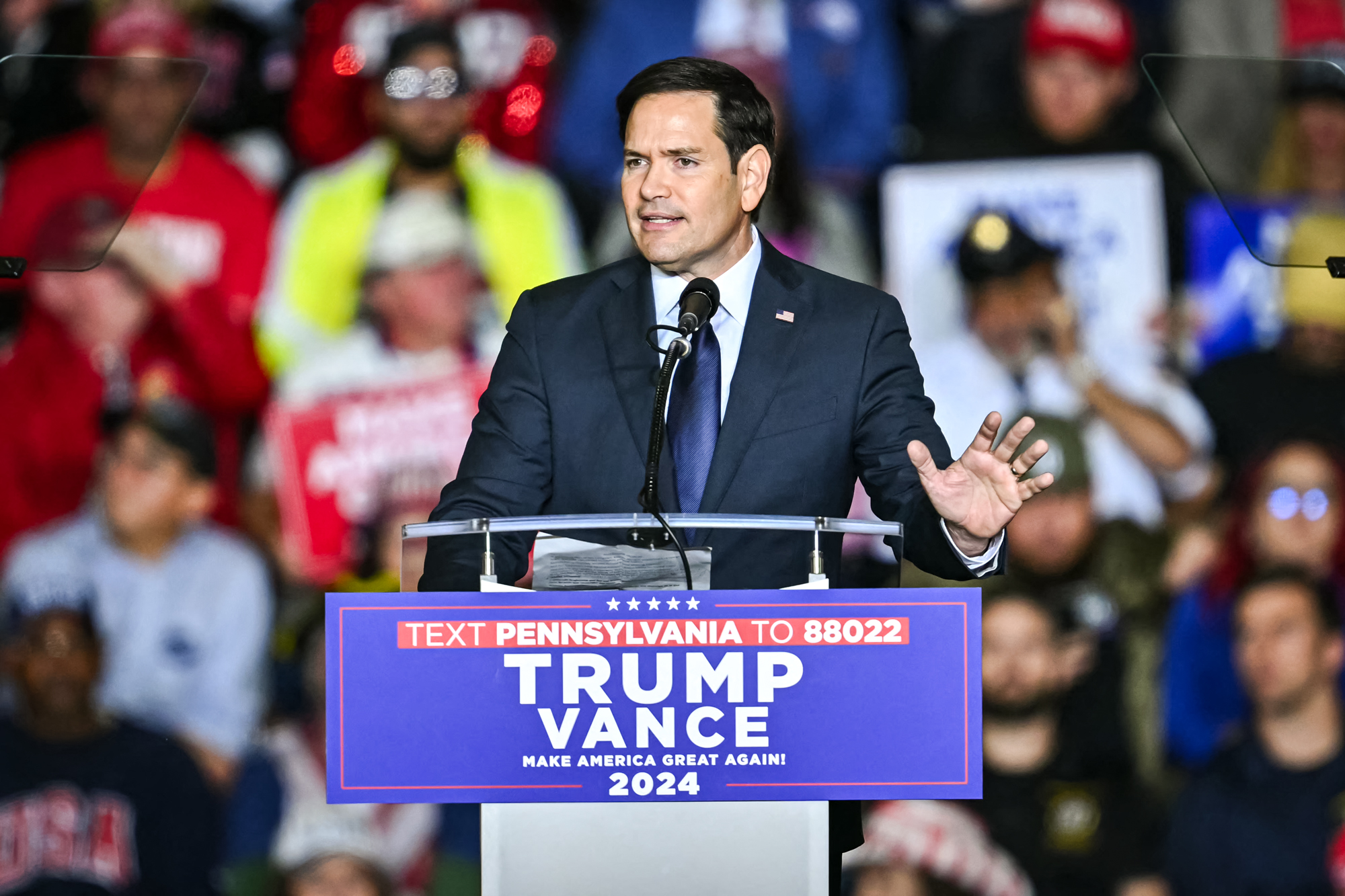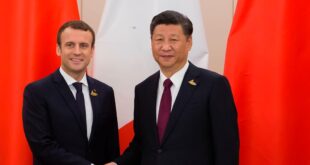
Muhamad Yehia
President-elect Donald Trump has picked Florida’s three-term senator Marco Rubio to be his nominee for secretary of state, setting the tone for a more hawkish administration on U.S. foreign policy.
“He will be a strong Advocate for our Nation, a true friend to our Allies, and a fearless Warrior who will never back down to our adversaries. I look forward to working with Marco to Make America, and the World, Safe and Great Again!”
The selection, pending Senate confirmation, will make Rubio the first Latino to serve as the nation’s top diplomat.
In a statement to The Epoch Times, Rubio thanked Trump for trusting him with the “tremendous responsibility.”
“I will work every day to carry out his foreign policy agenda,” he said. “We will deliver peace through strength and always put the interests of Americans and America above all else.
Upon Trump’s victory, Rubio said on Nov. 6 that the United States would pursue a more “pragmatic foreign policy,” pointing to the growing axis between North Korea, Iran, China, and Russia.
A Focus on China
Trump and Rubio came head to head in the 2016 GOP presidential primary and repeatedly traded insults. But after Trump assumed office in 2017, the two worked together on foreign policy issues, particularly the strategy toward Latin America. Rubio was one of Trump’s vice presidential finalists until July 15, when Trump announced Sen. JD Vance (R-Ohio) as his running mate.
As the vice ranking member of the Select Committee on Intelligence and a senior member of the Committee on Foreign Relations, Rubio has been pressing for a harder line toward human rights violators such as China.
His lawmaking draws on a tough-on-China approach, placing countering the Chinese regime as a top priority while calling out Beijing’s ambition to topple the United States and dominate the world through trade theft and coercion.
China’s outsized role in manufacturing came into focus during the COVID-19 pandemic as Beijing’s draconian lockdowns disrupted global supply chains.
“Imagine if they decide to deny us the same things, but not because of a pandemic, but because they want to threaten us into not getting involved in whatever it is they’re deciding to do around the world,” he said, citing the U.S. dependence on China for antibiotics, generic drugs, lithium-ion battery cells, and textiles
If Beijing decides to mount an invasion on Taiwan, the island neighbor that is now seeing heightened Chinese military pressure, these could be the levers the regime could weaponize against the United States, he said.
But more important than the interests of one company or sector is the overall picture, he said, noting that “we have all sorts of industries” that benefit from slave and forced labor in China-based production chains “because it’s cheaper.”
“Our job is to act in the best interest of the United States of America,” he said.
A member of the Congressional–Executive Commission on China since 2015, he cites the Chinese regime’s ambition to supplant the United States as the global leader as one driving force for his human rights advocacy.
Political Career
Rubio started his political career as a West Miami city commissioner in the 1990s before being elected to Florida’s House of Representatives in 2000. He served as the speaker of the Florida House from 2006 to 2008, when term limits ended his tenure at the state Legislature.
During a two-year period before the speakership role, he traveled around the state, hosting town-hall-style meetings to solicit Floridians’ views on how to build the state’s future.
Rubio chose the 100 best ideas and published the book “100 Innovative Ideas for Florida’s Future,” which served as the basis for his political platform. Former U.S. House Speaker Newt Gingrich called the effort a “work of genius,” and the state Legislature has ultimately acted on more than half of the ideas it lists.
He briefly taught at Florida International University before winning the U.S. Senate election in 2010 in a three-way race, a seat he has since held.
Rubio has long opposed Ukraine funding. In April, he voted against a $95 billion aid bill that also included $26 billion in assistance to Israel and $8 billion for Taiwan, arguing that addressing the U.S. immigration crisis should take higher priority.
He said last week that he believes the United States is “funding a stalemate that’s costing lives” and called for the Russia–Ukraine war to be brought to a close.
Rubio will likely have an easy time securing Senate approval. His Pennsylvania colleague, John Fetterman, was the first Democrat to voice support.
 موقع وجه أفريقيا موقع وجه أفريقيا هو موقع مهتم بمتابعة التطورات في القارة الأفريقية
موقع وجه أفريقيا موقع وجه أفريقيا هو موقع مهتم بمتابعة التطورات في القارة الأفريقية


